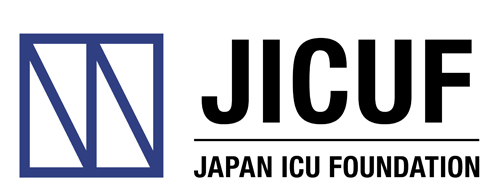Application is open from Monday, 7th August to Monday, 28th August, 2023.
If you are interested in applying, please read this web page carefully and apply here
What is Japan-Afghanistan Language School Pathways (JALP)?
Japan-Afghanistan Language School Pathways (JALP) offers an opportunity for Afghan youth to study Japanese in private language schools across Japan for two years. The program targets those in Afghanistan who seek evacuation to Japan or have fled to other countries after August 2021. It was modeled after Japan-Syria Japanese Language School Pathways and aims to help Afghan students acquire the level of Japanese necessary to enter universities and graduate schools or find employment.
In April 2024, around 6 Afghan students will be admitted to this program.
What the Program Provides
・Japanese language classes prior to travel to Japan
・Airfare to Japan
・Support for visa issuance and residence permit
・Tuition at a Japanese language school for two years
・Subsidy for the first six months
・Introduction of part-time job opportunities and housing
・Educational consultation and/or career consultation every three months to enter university or find employment
Please note that students are expected to work part-time to cover their rent and living expenses. Pathways Japan and language schools will help you find part-time work.
Pathways Japan will also help students find an apartment or shared house in Japan.
We will organize online Info Sessions on the date below
13th Aug Sun 11:00 AM (Afghan time)
If you are interested in taking part, please register here.
Future Prospects
If you are a high school graduate …
After you improve your Japanese language skills and obtain sufficient scores in the
Examination for Japanese University Admission for International Students (EJU), you can apply to universities in Japan. The program will offer regular consultation on the preparation for this exam, but scholarships for universities are not guaranteed and it is your responsibility to apply for financial aid. After graduating from a university or vocational school, you will have a good chance of finding a job in Japan. When you find employment, you can obtain a work visa in Japan.
If you are a university graduate …
Once you complete the two-year course, you can apply for a master’s degree by obtaining a scholarship. It is also possible to find employment and obtain a work visa. A high level of Japanese is normally required to find a job in Japan, even if one is fluent in English. It is also possible to apply for a master’s or doctor’s degree by saving enough funds through several years of work..
Eligibility
- Must be an Afghan national
- Must reside in Afghanistan and seek evacuation to Japan or fled to other countries after August 2021
- Must be single or partners (e.g. a husband and a wife) without accompanying families (The Japanese government does not issue visas for accompanying family members for language students.)
- Must have completed 12 years of school education, or be expected to complete 12 years of school education by March 2024 (This is a requirement to obtain a student visa in Japan.)
- If you are a high school graduate, you must be 26 years old or younger; if you are a university graduate, you must be 32 years old or younger.
- Must have studied or be studying Japanese.
- Must agree to work part-time at an entry-level job to cover your own living expenses
- Must not have a financial obligation to support family members (Students should expect part-time work to cover only their own living expenses, and not to support their families.)
- Must be able to submit the following documents:
a) Document describing your refugee background (e.g. letter explaining the difficulty of staying in or returning to your home country, issued by an NGO or an expert. If this cannot be obtained, the candidate can write his/her own statement.)
b) Passport copy (If you do not currently have a passport, you may apply without one, but you must obtain one by February 2024)
c) High school graduate certificate or equivalent document
d) High school transcript for grades 10-12 or equivalent document
e) (If you are a university student or graduate) University certificate and transcript for registered terms
f) Recommendation letter (*This letter should not be written by family members, relatives or friends. A letter from someone in Japan who may offer advice, information or any support to the applicant is desirable.)
Supporting Organizations
Pathways Japan – Implementing Organization
Pathways Japan (PJ) is a Japanese non-governmental and non-profit organization, independent of the Japanese government or UN agencies, supporting people with refugee backgrounds to be admitted to Japan to access higher education and employment. This program, originally called the Japanese Language School Program, and managed by the Japan Association for Refugees (JAR), was handed over to PJ on July 1, 2021.
Japanese Language Schools – Host Organizations
In 2023, around five Japanese language schools are planning to admit Afghan youth to study Japanese from April 2024 to March 2026. These schools will provide a full-tuition scholarship. If you would like more information about the host schools, please contact us here.

Japan ICU Foundation – Funding and Implementing Organization
The Japan ICU Foundation (JICUF) is a US non-profit organization based in New York. Since 2016, JICUF has partnered with JAR, and later with PJ, to administer the Syrian Scholars Initiative (SSI), a scholarship program for Syrian students to study at International Christian University (ICU) in Tokyo, Japan. From 2018 to 2022, SSI admitted seven Syrian students and has been offering them a full scholarship for four years. From 2023, JICUF will provide partial funding to administer JLSP and will support Afghan students in addition to Syrian students.
Main Support Companies



Application Timeline
| 7th August (Monday) to 28th August (Monday) 2023 | Application Period |
| 13th August (Sunday) 2023 11:00am:12:30pm (Afghan time) | Online Info Session |
| 14th August- 21st September 2023 | Document screening |
| 22nd September 2023 | First document screening annoucement |
| Between 23rd September and 5th October 2023 | Interview (online) by Pathways Japan (second screening) |
| 20th October 2023 | Announcement of second screening results |
| 23rd October – 3rd November 2023 | Interview (online) by Japanese language schools (third screening) |
| Early November 2023 | Announcement of final results |
Steps After Selection
| November 2023 | Application for residence status |
| December 2023 – March 2024 | Preparatory Japanese online classes |
| End of March 2024 | Travel to Japan |
| Second week of April 2024 | School starts |
How to Apply
Please fill in the Application Form below. (For those who will pass the first interview will be requested to submit additional documents for application.)
APPLICATION FORM
Application Period: 7th Aug Mon-28th Aug Mon 2023
If you have any questions, please contact us here.
FAQ
Q: What will my legal status be in Japan during the program?
A: You will stay in Japan with a student visa for two years. Please note that you will
not stay in Japan with “refugee” status.
Q: What will my legal status be in Japan after the program?
A: If you are a high school graduate, by entering university, you can extend your student visa for four years. (If you enter a vocational school, you can extend it for two years.) If you find employment after graduating from university/vocational school, you can apply for a work permit. The Japanese government does not issue work permits to foreigners without university or vocational school
certificate (except for some designated skill status defined by the government.)
If you are a university graduate and you find employment after finishing the language school program, you can apply for a work permit. Alternatively, if you enter graduate school, you can extend your student visa for another two years.
Q: What will happen if I am not able to attend university or vocational school, nor find employment?
A: Even if you are accepted to a university or vocational school, you will not be able to attend if you do not also obtain a scholarship or have enough savings to pay for tuition. Therefore it is important to do research on scholarships, prepare to apply, and also save money as much as possible during the two years of language study.
If you are unable to attend a university or graduate school, nor find employment, you must apply for humanitarian status to stay in Japan. PJ can give technical assistance but each student has to be responsible for one’s own own legal status as the decision will be made by the government.
Q: Can I work with a student visa?
A: As a student, you are legally allowed to work part-time up to 28 hours a week while school is in session, and 40 hours during school holidays. It is necessary for you to work to pay your rent and living expenses, but it work is also beneficial to improve your language skills and get accustomed to the local culture and people.
Q: What types of scholarships are there to attend university?
A: The following are some scholarships that you can apply for.
a) International Scholarship offered by PJ
In 2022, PJ launched Toshizo Watanabe International Scholarship . Students who have been admitted to the JALP and have obtained sufficient EJU scores are eligible to apply.
b) UNHCR Refugee Higher Education Program (RHEP)
UNHCR Japan provides a program called Refugee Higher Education Program
(RHEP) for students with refugee background who are living in Japan. After your arrival in Japan, you will be eligible for this full scholarship program.
c) Philoxenia Scholarship offered by JELA
Japan Lutheran Evangelical Association offers the Philoxenia Scholarship for students with refugee background in Japan. Students admitted through JSLSP are eligible. Students must apply separately to universities and be admitted to receive this partial scholarship.
d) Other scholarship opportunities
There are other organizations which provide scholarships to international students in
Japan. For a comprehensive list, please visit the JASSO website.
